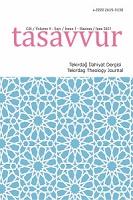İslam Hukuku Açısından Çift Bozan Vergisi
Çift Bozan (lit. Farm Breaker) Tax in Terms of Islamic Law
Author(s): Akif DursunSubject(s): Islam studies, Law on Economics, Fiscal Politics / Budgeting, Sharia Law
Published by: Tekirdağ Namık Kemal Üniversitesi İlahiyat Fakültesi
Keywords: Islamic law; Faradi; Nabulsi; çift resmi; çift bozan;
Summary/Abstract: The primary source of income in the Ottoman Empire, like in other pre-vious and contemporary states, was land. For this reason, the private ownership of land, especially those used for grain production, was avoided, and efforts were made to keep them as state-owned or public lands known as "mirî" or "memleket arazisi". This situation brings up the issue of cultivating the land and generating income from it. The Ottoman Empire further developed the timar system, which was also implemented by the previous states, and allocated land to families based on its productivity by dividing it into certain sizes. These families were required to pay a tax known as "çift resmi", "raiyyet resmi", or "kulluk akçası." The system was based on the cultivation of the land by the peasants, thus ensuring both the production of crops without venturing food security and providing the state with the necessary tax revenue. Thus, it was necessary for the peasants not to abandon their land. One of the precautions taken to ensure this was "cebrî ikamet" (compulsory residency), and the other was "çift bozan resmi" (a tax imposed on those who leave their land uncultivated). Regulations regarding these measures have been included in the Kanunnames (legal codes) since the time of Fatih Sultan Mehmet, and they remained in effect until the 1858 Land Code. Since the nişancıs who prepared the Kanunnames had a good command in Islamic fiqh and the laws were at least theoretically approved by the sheikh al-islam until the mid-17th century, no one among the Ottoman scholars was known to oppose these regulations. Due to the serious disruption of the timar system and the increasing oppression of the peasants, criticisms of the "çift bozan" and "cebrî ikamet" measures began among the scholars in the Damascus region, led by Hayreddin Remlî, in the second half of the 17th century. This criticism intensified over time. In fact, two separate treatises were written on this issue. The scholars in Istanbul were also partly affected by this criticism. In this article, the "çift bozan" tax and its status in Islamic law will be primarily examined. All views in favor or against this issue will be put forth as much as possible, and an evaluation will be made while trying to come up with a different perspective.
Journal: Tasavvur Tekirdağ İlahiyat Dergisi
- Issue Year: 9/2023
- Issue No: 1
- Page Range: 763-802
- Page Count: 40
- Language: Turkish

